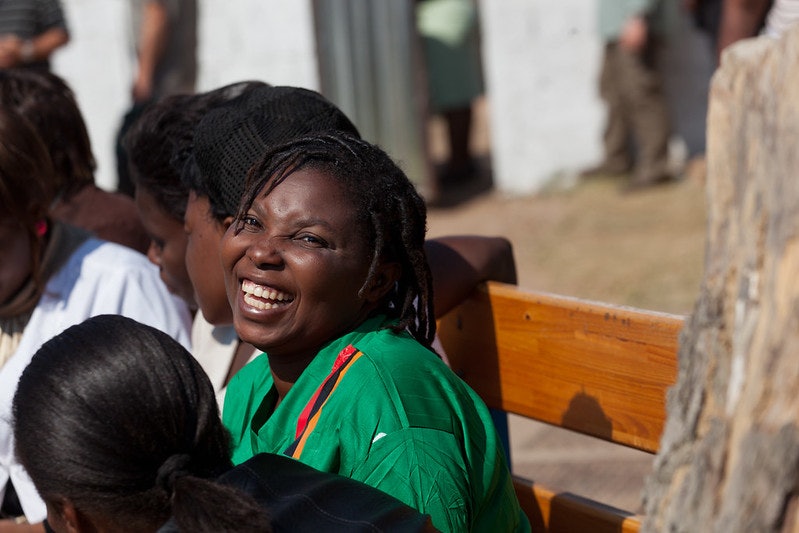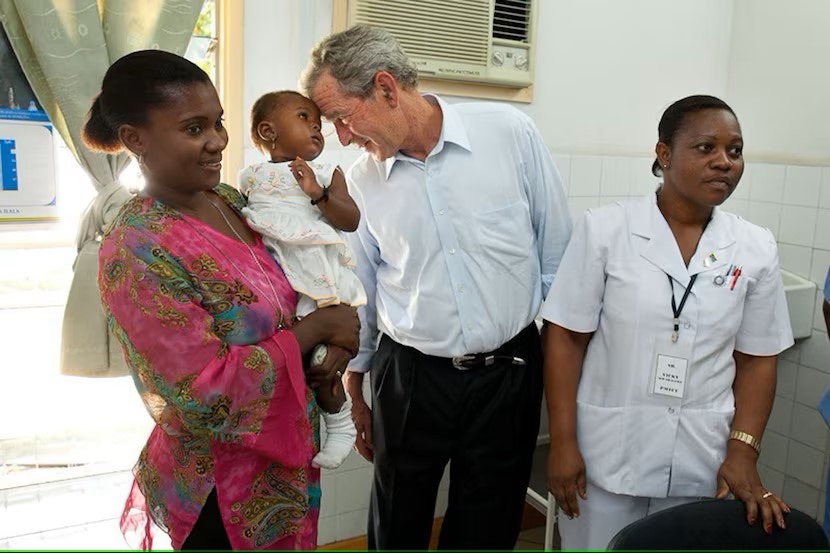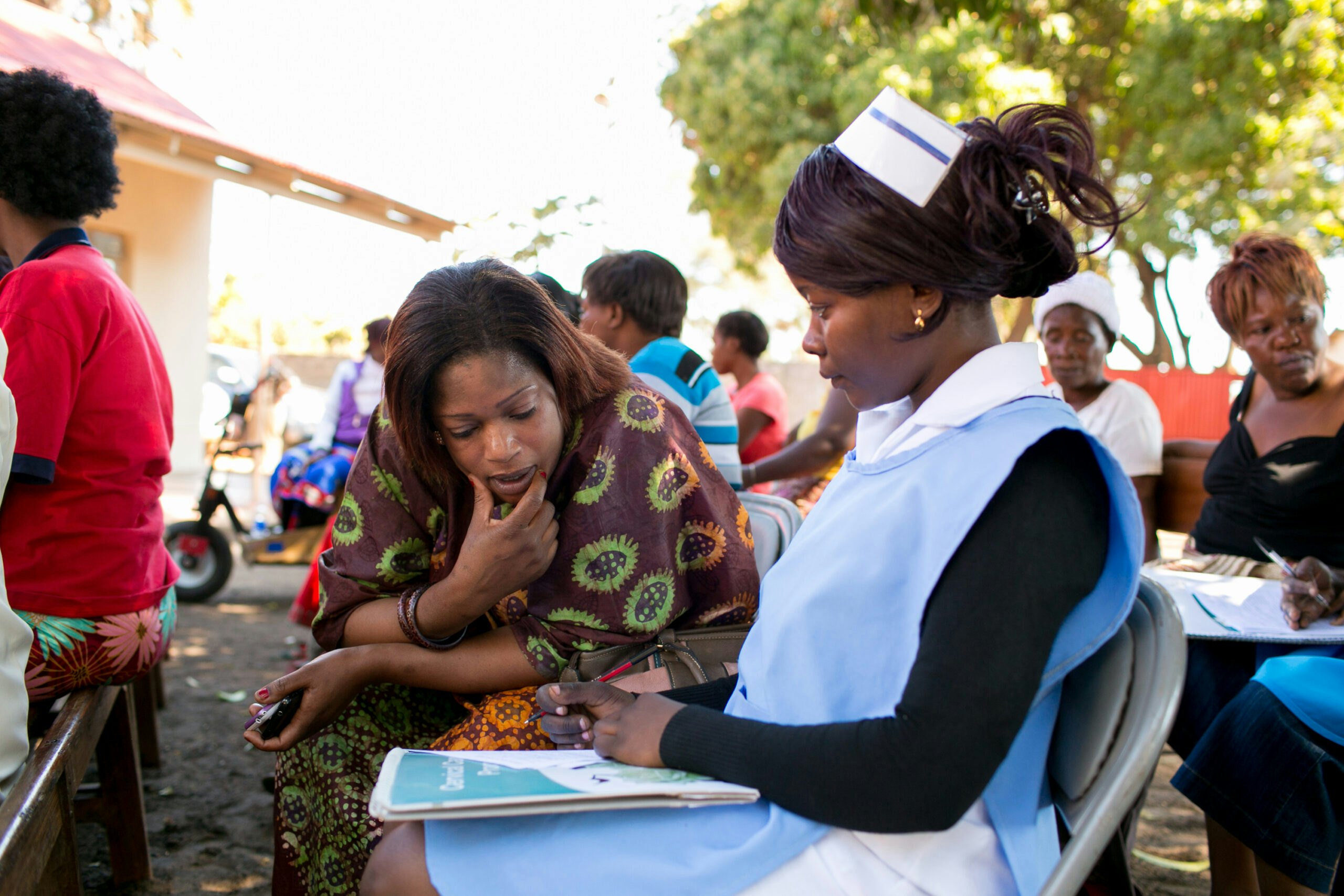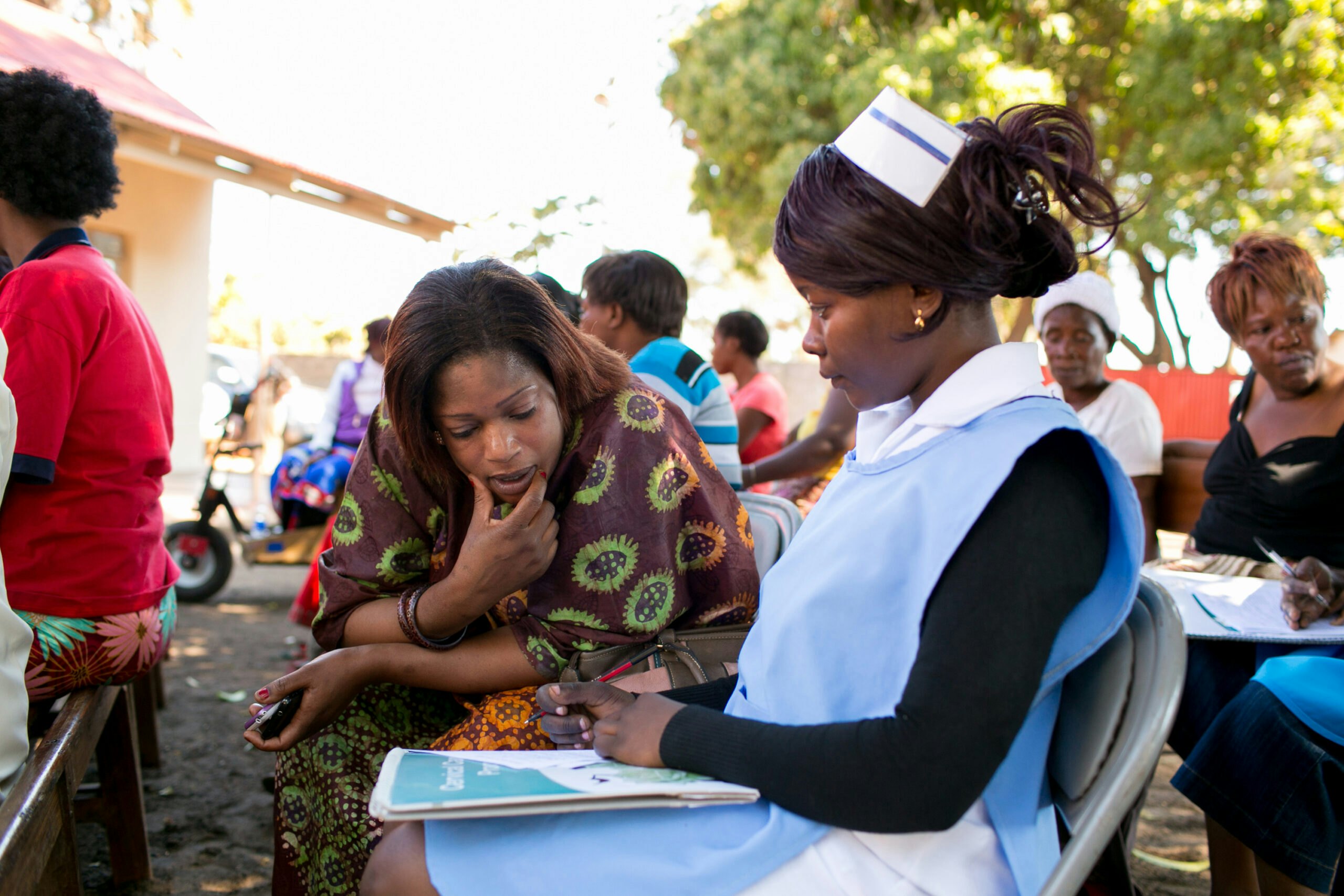Jabulile “Jabu” Sithole lives positively with HIV and has survived cervical cancer. Every day she fights for the health of her community and country, but cervical cancer still affects her family.
Eswatini has the highest prevalence of HIV in the world. Driven by the high burden of HIV, the country also has one of the highest incidence rates of cervical cancer. Through Go Further, in partnership with the government of Eswatini, services for cervical cancer screening and treatment for precancerous lesions are being scaled up across the country. Jabulile “Jabu” Sithole, who lives positively with HIV and has survived cervical cancer, fights for the health of her community and country, but cervical cancer still affects her family.
This interview was edited for length and clarity.
Crystal Cazier (CC): Tell me about yourself.
Jabulile Sithole (JS): I am Jabulile Sithole, but I call myself Jabu. I’m 45 years old. I’m an expert client here at PSI [(Population Services International)]. I’m HIV-positive.
CC: Tell me about being an expert client. What does that mean and what do you do?
JS: Being an expert client, I help other clients who have just discovered they are HIV-positive to tell them that life is not over although they have been diagnosed with [HIV]. We are here to make the client see that we are the example that being HIV-positive is not the end of life.
CC: What do you love most about being an expert client?
JS: I love when people accept treatment because my husband didn’t want to take the treatment. When he decided to take the treatment, it was too late. So, I want to tell people that the treatment can work. And I love to counsel people. I like to talk to people about life and to tell them that if they have a problem, they should talk about it so that they can pass through it.
CC: What’s most challenging about your job as an expert client?
JS: It’s challenging because [some of] the clients don’t know really what [HIV] is. I have to first explain what HIV is, what it does to our bodies, what the danger is of not getting tested to know your status, and what is the danger of not taking the treatment if you already know your status.
CC: Have you been screened for cervical cancer?
JS: Yes, I did it in March 2017. I brought a client to initiate ART [(antiretroviral therapy)] at the clinic. The nurse came and explained about cervical cancer as we were waiting. They said my screening was okay, so I have to screen again in March 2018. But I was busy at work, and I didn’t go. I decided in late 2018 to do it because I was told if you are HIV positive, you have a higher chance of being infected by cervical cancer. This time, the nurse told me [my cervix] was bleeding. So the nurse gave me some medication and said I should come back in three months. But I didn’t go until April 2019. I decided to go to a different clinic, and the doctor showed me the pictures [of my cervix] and took a specimen to the lab. I came back to the clinic after two weeks for my results and he said there are cells that might cause cancer. I decided that since I am done having children, they should just [do a hysterectomy]. So, in May 2019, they removed my womb. Now I am fine. I don’t feel any pain. I’m normal and I’m happy. The reason I took it seriously to get checked was because my mom is also HIV-positive. She also did the screening and discovered she had cervical cancer. She was doing chemotherapy, but she stopped treatment early in 2019. I have seen what I would have to go through because of my mom. My mom was in pain.
CC: You said she just completed chemotherapy, correct?
JS: She didn’t complete it because it is expensive. She was supposed to go back but she was told not to come because there was an issue with the hospital getting [chemotherapy provided] by the government. And she doesn’t know how the chemotherapy worked because she was supposed to get test results after that visit.
CC: How is your mom feeling now?
JS: She is feeling well. But we don’t know if she will be okay because this cancer is a thief. It goes unnoticed.
It’s sad because I know cancer. Cancer is more serious than HIV. But now, cancer with HIV is more dangerous. It’s so sad.
CC: When you are meeting with clients who are newly diagnosed, do you tell the women about cervical cancer?
JS: Yes, it is part of our counseling to tell them to get screened. And now there are so many clinics that have the screening department.
CC: What do you want women to know about cervical cancer, especially women living with HIV?
JS: I would like them to know that it is deadly. Once you are diagnosed with cancer, years are taken off your life. Cancer is deadly and there is no treatment, just therapy.
CC: What do you want us to know about what you go through as a woman living with HIV and a woman who has been treated for cervical cancer?
JS: I would like you to know that even though I am an expert client, I have fear. HIV is a thief, it can steal my life and attack the weak part of me. I want you to know that it is important for us to have those checkups so that we can get treatment before it is too late.
Caroline Ryan (CR)*: I wanted to ask you, how much of your own money did you have to use to get treatment?
JS: I didn’t use my money. It was medical aid [health insurance through my job that covered the expenses].
CR: But not everyone has medical aid, especially those in rural areas?
JS: No. Like my mom. She was dependent on the government to pay for her treatment. For those clients, it’s bad. They have to wait for the government to decide if they will be referred for treatment, and may wait in a long queue.
CC: What do you dream about for the future, for yourself, children, or your country?
JS: I dream for a prosperous future for my children. I have to be productive so that they can get that help from me. I also have to be productive for my community to be a healthy community. With a healthy community, government has less of a job because we are able to cater for ourselves. With a healthier community, the government would be healthier too.
*Dr. Caroline Ryan is the CDC Country Director for Eswatini.





























